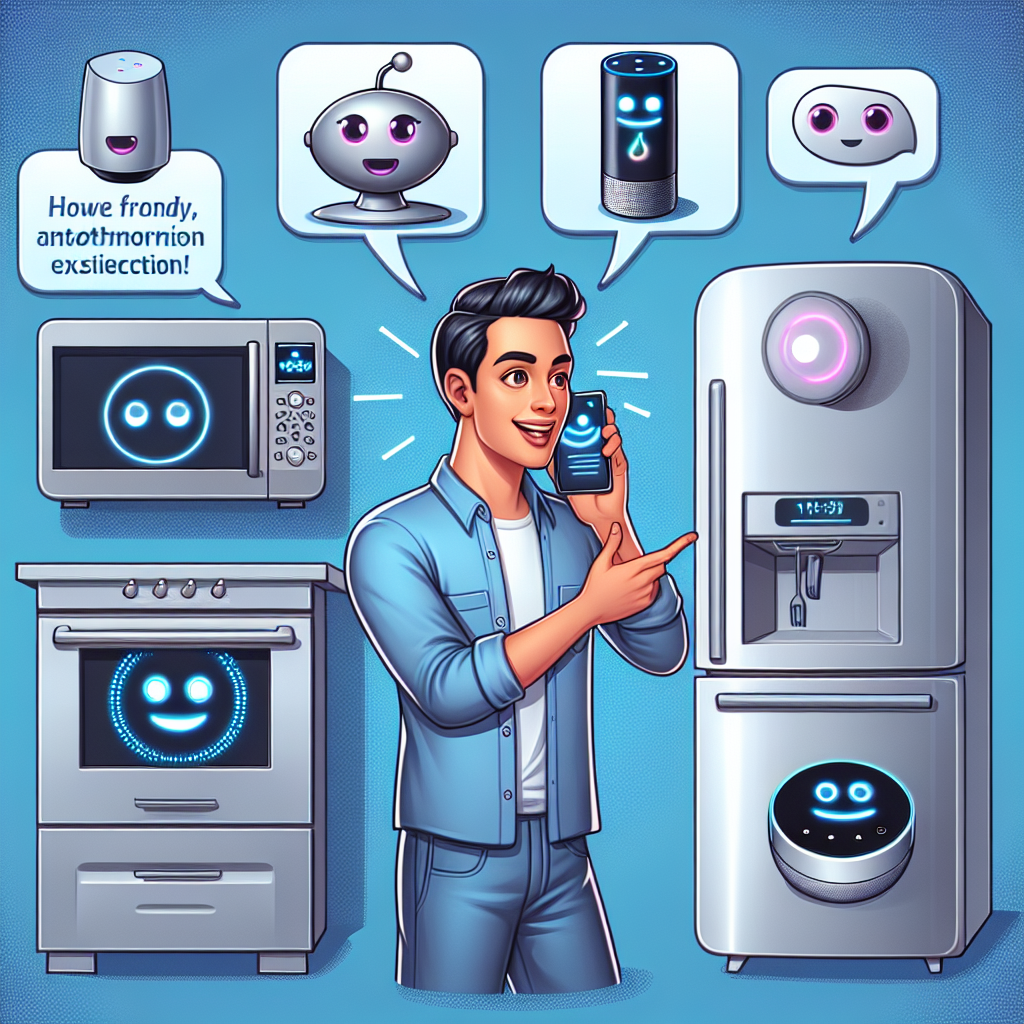In the bustling halls of hospitals and clinics worldwide, a quiet revolution is taking place. While medical breakthroughs often make headlines with dramatic announcements, the integration of AI through specialized SaaS creation platforms represents a subtler yet equally profound transformation in healthcare. These technological innovations aren’t just changing administrative processes—they’re actively saving lives, improving patient outcomes, and revolutionizing how care is delivered.
The impact of AI SaaS creation platforms in healthcare extends far beyond efficiency improvements. These platforms are enabling healthcare providers to develop customized solutions that address specific challenges in patient care, diagnosis, and treatment planning. As these technologies become more accessible through low-code platforms, we’re witnessing the democratization of healthcare innovation, allowing more stakeholders to contribute to this life-saving revolution.
Transforming Healthcare Through Intelligent Applications
The applications of AI in healthcare have expanded dramatically in recent years, with transformative impacts across multiple domains. Diagnostic imaging, once solely dependent on the human eye, now benefits from AI algorithms that can detect subtle abnormalities with remarkable precision. For instance, Viz.ai’s platform can identify signs of stroke in CT scans within minutes, potentially saving critical time in treatment decisions when every second counts.
Patient triage, traditionally a time-consuming process vulnerable to human error, has been revolutionized through AI applications that can rapidly assess symptoms and prioritize cases based on severity. These systems can analyze thousands of data points simultaneously, identifying high-risk patients who require immediate attention while ensuring those with less urgent needs still receive appropriate care.
Perhaps most impressive is the rise of predictive analytics in healthcare. AI SaaS creation platforms now enable the development of tools that can forecast patient deterioration hours before clinical signs become apparent. One study found that an AI system could predict acute kidney injury up to 48 hours before traditional diagnosis, giving clinicians valuable time to intervene and potentially prevent long-term damage.
“The integration of AI applications in healthcare isn’t just about keeping pace with technology—it’s about fundamentally improving patient outcomes through earlier detection, more accurate diagnosis, and personalized treatment plans,” explains Dr. Sarah Chen, a digital health researcher. “These platforms are providing the infrastructure for a new era of medicine.”
These developments aren’t merely theoretical; they’re already improving operational efficiency and patient outcomes in real-world settings. Hospitals implementing AI-powered workflow systems report reduced wait times, decreased length of stay, and improved patient satisfaction scores—all while potentially saving more lives through faster, more accurate care.
Automating Workflows: Freeing Healthcare Professionals for Patient Care
One of the most significant contributions of AI SaaS creation platforms in healthcare has been workflow automation, which addresses the administrative burden that often pulls healthcare professionals away from direct patient care. Studies have shown that physicians spend nearly two hours on administrative tasks for every hour they spend with patients—a ratio that contributes to burnout and decreased job satisfaction.
Through customizable AI digital workers, healthcare organizations are automating routine tasks like appointment scheduling, insurance verification, and billing processes. For example, when a patient calls to schedule an appointment, AI systems can automatically check provider availability, verify insurance eligibility, and send confirmation notifications—all without human intervention.
“Before implementing our AI scheduling system, our staff spent roughly 15 hours per week just managing appointment changes,” shares Michael Roberts, an administrator at a mid-sized clinic. “Now that time has been redirected to improving the patient experience and addressing more complex issues that require a human touch.”
Similarly, billing processes that once required manual coding and verification can now be handled through intelligent workflow automation. These systems can analyze clinical documentation, assign appropriate billing codes, and flag potential errors or compliance issues before claims are submitted. The result is faster reimbursement, fewer denied claims, and reduced administrative costs.
By freeing healthcare professionals from mundane tasks, AI-powered workflow automation allows them to focus on what matters most: providing compassionate, high-quality care to patients. This shift not only improves job satisfaction among healthcare workers but also enhances the overall patient experience by ensuring that interactions are meaningful rather than transactional.
Customizable AI Digital Workers: Tailored Solutions for Healthcare Challenges
Healthcare organizations face unique challenges that often require specialized solutions. Customizable AI digital workers—virtual assistants powered by artificial intelligence—are emerging as powerful tools for addressing these specific needs. Unlike off-the-shelf products, these digital workers can be tailored to perform particular tasks within a healthcare setting, from patient communication to clinical decision support.
For instance, some hospitals have deployed AI digital workers to handle patient follow-up after discharge. These systems can automatically contact patients, assess their recovery, and flag concerns that may require intervention from a human provider. This approach ensures consistent follow-up care while optimizing the use of clinical resources.
In radiology departments, customizable AI digital workers assist in prioritizing imaging studies based on clinical urgency. When a patient undergoes a CT scan, the digital worker can analyze the images, identify potential abnormalities, and alert radiologists to cases that require immediate attention. This capability is particularly valuable during off-hours when staffing may be limited.
“What makes AI digital workers so powerful in healthcare is their adaptability,” notes Dr. James Wilson, Chief Innovation Officer at a leading health system. “We can configure these systems to address our specific workflow challenges, integrate with our existing technologies, and evolve as our needs change.”
The flexibility of these digital workers also extends to patient-facing interactions. Some healthcare organizations have implemented AI-powered chatbots that can triage patient concerns, provide basic health information, and schedule appointments when necessary. These tools are continually refined based on patient feedback and changing healthcare protocols, ensuring they remain relevant and effective.
As healthcare organizations continue to explore the potential of customizable AI digital workers, we’re likely to see even more innovative applications that enhance service delivery and organizational capabilities while maintaining the human connection that remains essential to quality care.
Democratizing Innovation: User-Friendly AI Tools and Low-Code Platforms
The technical complexity of developing AI applications has historically limited innovation in healthcare to organizations with substantial IT resources and specialized expertise. However, the emergence of user-friendly AI tools and low-code platforms is democratizing this process, enabling clinicians, administrators, and other non-technical staff to participate in creating solutions to everyday challenges.
Low-code platforms like those offered by Zygote.AI allow healthcare professionals to design and implement AI applications through intuitive visual interfaces rather than complex programming languages. A nurse manager who identifies an inefficiency in medication administration, for example, can use these tools to develop a solution without waiting for IT department availability or approval.
“I never thought I’d be able to create technology solutions myself,” admits Dr. Rebecca Chen, a primary care physician. “But with low-code platforms, I’ve built several small applications that have significantly improved our practice workflow. It’s empowering to directly address the problems I encounter daily.”
This democratization of technology development fosters a culture of innovation throughout healthcare organizations. When frontline staff can easily translate their insights into functional applications, the result is a more responsive and adaptive healthcare system that continuously improves based on real-world experiences.
Furthermore, intelligent collaboration features within these platforms enable cross-functional teams to work together on complex healthcare challenges. A clinician can partner with a billing specialist and a quality improvement expert to develop a comprehensive solution that addresses clinical, financial, and operational aspects of a particular process.
By making AI more accessible, user-friendly tools and low-code platforms are unleashing creativity and problem-solving capabilities throughout the healthcare ecosystem. This inclusive approach to innovation ensures that technology development is guided by the needs and insights of those who understand healthcare delivery best—the professionals who provide care every day.
Personal Use AI Products: Empowering Patients in Health Management
The revolution in healthcare AI extends beyond clinical settings to include personal use AI products that empower individuals to take a more active role in managing their health. These consumer-facing applications leverage the same underlying technologies that power clinical systems but are designed specifically for everyday health management.
Wellness apps powered by AI can track physical activity, sleep patterns, and nutritional intake, providing personalized recommendations based on individual goals and health status. These applications often integrate with wearable devices that continuously monitor vital signs and other health metrics, creating a comprehensive picture of personal health that was previously impossible outside a clinical setting.
“The most powerful aspect of personal health AI is its ability to identify patterns that might otherwise go unnoticed,” explains Emma Roberts, a health technology analyst. “When an app notices that your sleep quality declines after days with less physical activity, it’s providing insights that can lead to meaningful behavioral changes.”
Beyond wellness tracking, AI-powered personal health assistants can help individuals manage chronic conditions more effectively. Patients with diabetes, for example, can use applications that predict blood glucose levels based on meal composition, activity levels, and medication timing. These predictions enable proactive management rather than reactive responses to symptoms.
Mental health is another area where personal use AI products are making significant inroads. Applications that use natural language processing to identify signs of anxiety or depression can provide early intervention resources or suggest therapeutic exercises based on cognitive behavioral therapy principles.
As personal use AI products become more sophisticated and integrated with clinical systems, they’re creating a continuous health management ecosystem that bridges the gap between periodic doctor visits. This approach to proactive health engagement not only improves individual outcomes but also contributes to a more sustainable healthcare system by potentially reducing the need for acute interventions.
Fostering Innovation: Sharing and Selling AI Solutions
The healthcare challenges we face today are too complex and varied for any single organization to solve alone. AI SaaS creation platforms are fostering a collaborative marketplace where innovative solutions can be shared and sold, accelerating the pace of improvement across the industry.
When a hospital develops an effective AI application for reducing readmissions, for instance, that solution can be made available to other organizations facing similar challenges. This approach prevents the needless duplication of effort and ensures that best practices spread quickly throughout the healthcare ecosystem.
“We spent months developing an AI system that optimizes operating room scheduling,” shares Dr. Michael Chen, a surgical director. “Through a healthcare AI marketplace, we’ve been able to share this solution with dozens of other hospitals. Not only does this generate revenue for our innovation efforts, but it also allows us to learn from how others adapt and improve upon our initial design.”
For smaller healthcare organizations with limited resources, these marketplaces provide access to sophisticated AI solutions that would be impossible to develop independently. A rural clinic can implement an AI diagnostic support tool originally created at a major academic medical center, immediately elevating the level of care available to its patients.
This collaborative approach to innovation is particularly valuable in addressing healthcare disparities. When effective solutions can be easily shared across geographic and socioeconomic boundaries, the benefits of technological advancement become more equitably distributed.
By creating economic incentives for innovation through marketplaces for sharing and selling AI products, platforms like Zygote.AI are accelerating the development cycle and ensuring that valuable solutions reach the patients and providers who need them most.
Embracing the Future: AI as Essential Healthcare Infrastructure
As we look toward the future of healthcare, it’s clear that AI SaaS creation platforms aren’t merely optional enhancements—they’re becoming essential infrastructure for organizations committed to providing high-quality, efficient care in an increasingly complex environment.
The healthcare systems that thrive in the coming decades will be those that fully embrace these technologies, integrating them thoughtfully into clinical and operational workflows. This integration requires not just technological investment but also cultural change that values innovation and continuous improvement.
“Healthcare has historically been slow to adopt new technologies, often for good reasons related to patient safety and regulatory compliance,” observes Dr. Jennifer Lee, a healthcare futurist. “But we’ve reached a tipping point where the risks of not embracing AI may outweigh the risks of implementation. The organizations that adapt most effectively will be those that find the right balance between innovation and appropriate caution.”
This balanced approach aligns perfectly with Zygote.AI’s philosophy of empowering innovation through accessible technology. By providing tools that enable healthcare organizations to create customized AI solutions without extensive technical expertise, Zygote.AI is helping to democratize the development process and accelerate the pace of positive change.
The true promise of AI in healthcare isn’t about replacing human judgment but enhancing it—providing clinicians, administrators, and patients with better information, more efficient processes, and new capabilities that were previously impossible. When healthcare professionals can focus more of their time and attention on the human aspects of care, supported by intelligent systems that handle routine tasks and complex analyses, the result is better experiences and outcomes for everyone involved.
As we continue this journey of healthcare transformation, the silent revolution led by AI SaaS creation platforms will increasingly make its presence known—not through dramatic headlines, but through the countless lives saved, improved, and extended through the thoughtful application of these powerful technologies.









